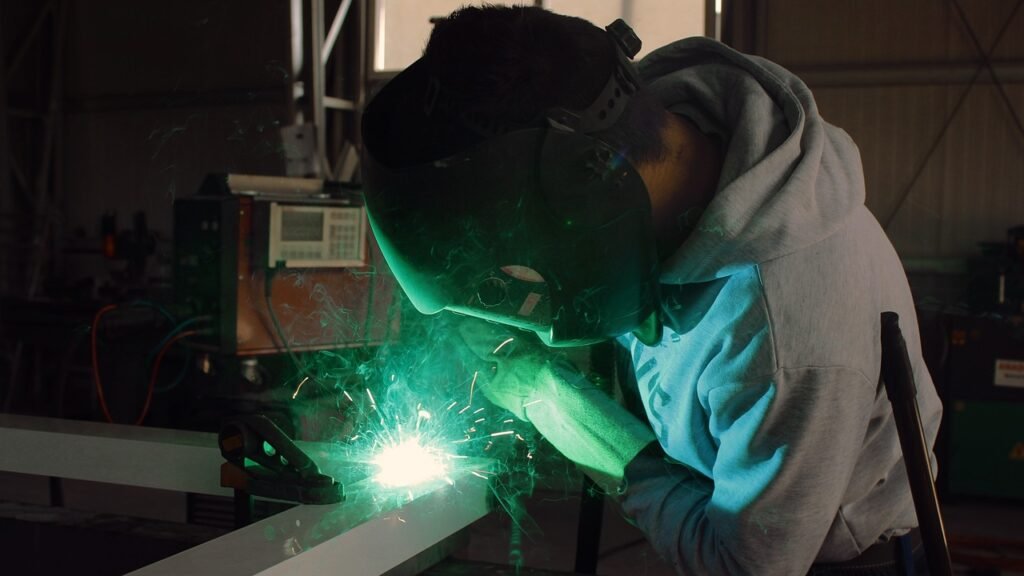
Intro
In today’s competitive job market, there is a constant emphasis on developing technical skills to advance in one’s career. However, the importance of soft skills cannot be overlooked. While technical skills are essential for performing specific tasks, soft skills are crucial for overall success in the workplace.
In this blog post, we will delve into the debate of technical skills versus soft skills and discuss why the latter may actually hold more weight in today’s professional world.
Defining Soft Skills and Technical Skills

To dive deeper into the soft skills versus technical skills debate, we must first unravel what these terms actually mean.
Technical skills are those that are associated with a specific function or task, they are practical in nature and often tied to domains like IT, math, scientific or mechanical fields. If you’re a whiz at computer programming, operate machinery with ease or are multilingual, you possess technical skills.
On the other hand, soft skills aren’t linked to a particular job or industry; they are the general skills that can improve any job performance. They encompass aspects like communication, critical thinking, teamwork, and adaptability. Soft skills could be your ability to keep a level head in a crisis, rally a team towards a common goal, or solve a problem creatively. Unlike technical skills, which are about ‘what’ you do, soft skills are about ‘how’ you do it.
To put it in simpler terms, technical skills might get your foot in the door, but soft skills help you walk through it. Now that we have a clear understanding of both, let’s explore their role and significance in the modern workplace.
The Rising Importance of Soft Skills

We live in a world driven by digital transformation. As machines, algorithms and artificial intelligence increasingly undertake routine and technical tasks, there’s a burgeoning emphasis on skills that technology can’t replicate. Welcome to the age of soft skills.
Businesses are rapidly realizing that while technical skills can be taught, soft skills are significantly harder to acquire and refine. These traits, such as emotional intelligence, adaptability, and interpersonal abilities, can’t be programmed into a bot. They’re uniquely human, grounded in our capacity to relate, engage, and navigate the landscape of human relationships and societal norms.
In fact, many industry leaders are openly valuing these skills more than ever before. They understand that technical acumen can bring a project to life, but it’s soft skills that can spark innovation, foster a productive work environment, and effectively manage crises. Whether it’s the creativity to brainstorm fresh ideas, the resilience to tackle challenges, or the emotional intelligence to inspire a team – soft skills are now seen as the critical x-factor that distinguishes top performers.
And this shift isn’t just anecdotal. Recent studies reinforce this trend, showing that employers are placing greater weight on soft skills during the hiring process. A LinkedIn survey revealed that 92% of talent professionals and hiring managers say that soft skills are just as important, or more important, than technical skills.
The value of soft skills is unmistakable in today’s dynamic and collaborative work environments. As we navigate the digital revolution, the human touch, it appears, is irreplaceable.
The Undeniable Need for Technical Skills

While the spotlight is steadily shifting towards soft skills, the role of technical skills in the modern workplace remains as vital as ever. These skills, often specific to a certain role or industry, are instrumental in performing day-to-day tasks and functions. In fact, without a strong technical foundation, the effectiveness of soft skills can be significantly diminished.
Consider the field of data analysis, where proficiency in tools like Python or SQL is a prerequisite. Here, without the right technical knowledge, even the strongest communication or problem-solving abilities may fall short. Similarly, in areas such as engineering or technology, understanding the nuts and bolts of complex machinery or mastering the latest coding languages is crucial. These aren’t tasks you can ‘wing’ through interpersonal skills or emotional intelligence.
In essence, technical skills form the bedrock upon which most job roles are built. It’s these skills that ensure a smooth and efficient workflow, allowing us to perform our jobs with precision and competence. From operating software to implementing algorithms, understanding legal regulations to executing financial models – technical skills empower us to carry out our responsibilities with a level of expertise and credibility.
Furthermore, technical skills are often the ‘entry ticket’ to a job. They’re the tangible qualifications that recruiters first scan for in a resume or a cover letter. Without these, chances are, you might not even make it past the initial screening process.
So, while we’re living in an age that celebrates soft skills, let’s not lose sight of the enduring relevance of technical skills. They continue to be a cornerstone of professional competence, driving us towards a level of excellence that can’t be achieved through soft skills alone. As we strive to balance both, it’s clear that technical skills are here to stay, playing an indispensable role in our career journeys.
The Balance Between Soft Skills and Technical Skills

Striking the perfect equilibrium between soft skills and technical skills can often feel like walking a tightrope. How much weight should you give to each side? The answer isn’t as straightforward as you might think and can vary greatly depending on your role, industry, and career stage. It’s crucial to remember that both these skill sets act as two sides of the same coin, each enhancing and complementing the other.
Consider an architect, whose technical skills in design and construction are undoubtedly crucial. Yet, without effective communication and collaboration abilities (soft skills), working with clients and contractors could become a challenge. Or think of a software developer. While their coding prowess (technical skills) is fundamental, without problem-solving capabilities and creativity (soft skills), they may struggle to create innovative solutions or fix unforeseen bugs.
The magic happens when you can marry your hard-earned technical expertise with strong soft skills. This fusion not only makes you a well-rounded professional but also makes you indispensable in the modern workplace. It’s about having the technical know-how to carry out your job effectively and the soft skills to navigate the complexities of human interaction, manage change, and drive innovation.
Ultimately, the right balance doesn’t mean a 50-50 split. Instead, it’s about nurturing both skill sets, understanding when to lean on your technical knowledge and when to tap into your soft skills. The goal should be to create a harmonious interplay between both, allowing them to work together to enhance your performance, productivity, and professional growth.
The Impact of Soft Skills on Career Growth

As your career path advances, you’ll find that soft skills take on a larger role, having a profound impact on your upward trajectory. With each step up the corporate ladder, your technical abilities, while still important, often become less emphasized compared to your aptitude in leadership, communication, conflict resolution, and problem-solving.
Imagine you’re up for a promotion to a managerial position. While your technical proficiency in your field is essential, what might truly set you apart is your ability to inspire, guide, and motivate your team. If you can resolve conflicts smoothly and maintain harmony, you’ll not only foster a productive workspace but also enhance your own reputation as a leader. Similarly, your capacity to communicate effectively, both within your team and with clients or stakeholders, can significantly influence your success at this higher level.
Soft skills also come into play in less obvious ways. For instance, having a growth mindset, a soft skill in itself, can facilitate continual learning and adaptability. In turn, this could lead to improved job performance, increased innovation, and higher job satisfaction.
Further, there’s an intriguing correlation between soft skills and earnings. A study by Harvard University, the Carnegie Foundation, and Stanford Research Center concluded that 85% of job success comes from having well-developed soft skills and people skills, and only 15% from technical knowledge. This clearly underscores the potential financial benefits of cultivating your soft skills.
So, while your technical skills may have been your passport into your chosen field, it’s your soft skills that could ultimately steer the course of your career growth. Building these abilities could well be your ticket to not only survive, but truly thrive in the modern workplace.
Relevance of Technical Skills in the Digital Age

In today’s digital era, the prominence of technical skills remains unshakeable. As the backbone of numerous industries, particularly those tech-centric, these skills are not just relevant, but highly sought after. Consider fields like coding, data analytics, or digital marketing, where mastering specific software, programming languages, or data analysis tools is paramount. These are domains where technical prowess can define your career trajectory.
Within the tech industry, there is a constant evolution of new technologies, platforms, and programming languages. To remain relevant, professionals need to consistently update their technical knowledge, keeping pace with emerging trends. Whether it’s mastering the latest JavaScript framework, understanding the nuances of machine learning, or becoming proficient in cloud computing, there’s always something new to learn, something new to conquer. This necessity for continuous learning underscores the enduring relevance of technical skills in the digital age.
Moreover, in this tech-driven world, even non-tech roles often require a baseline of technical proficiency. For example, marketers need to be comfortable with digital advertising tools, project managers need to navigate project management software, and even HR professionals need to understand HR tech platforms. Thus, technical skills extend beyond their traditional boundaries, permeating various sectors and roles, underlining their widespread relevance.
So, as we stand at the precipice of technological advancement, it’s evident that technical skills are far from fading into the background. They continue to hold a significant place in the professional landscape, enabling us to navigate the digital revolution. It’s clear that in this digital age, technical skills are not just relevant, but indispensable, continually shaping the trajectory of numerous professions and industries.
In Conclusion: Neither is Overrated

In our quest to determine the supremacy of one skill set over another, we’ve navigated through the intricate maze of technical and soft skills, analyzing their relevance and value in the modern workplace. What have we discovered? It’s not a battle of superiority but rather a harmonious symphony of co-dependency. Technical skills are not overrated, nor are soft skills understated. Each brings its own unique value to the table, enhancing and complementing the other.
Take the accomplished coder for instance. His or her technical prowess is undeniable, but it’s their problem-solving abilities and teamwork that truly enrich their contributions. Similarly, a project manager’s strength lies not only in their command over project management tools but also in their leadership, adaptability, and communication skills.
In the end, it’s about striking the right balance and fostering the interplay between these two facets. As the digital revolution unfolds, the technical expertise continues to be indispensable, powering our professional prowess. Simultaneously, the irreplaceable human touch embodied by soft skills is increasingly treasured. The fusion of these two forms the cornerstone of professional competence and success.
So, rather than viewing it as an either-or situation, let’s celebrate the alchemy of technical and soft skills. It’s this synergy that enriches our professional canvas, paving the path for innovation, productivity, and growth. As we step into the future, let’s remember that neither technical skills nor soft skills are overrated – they are both invaluable pieces of our professional jigsaw puzzle.
